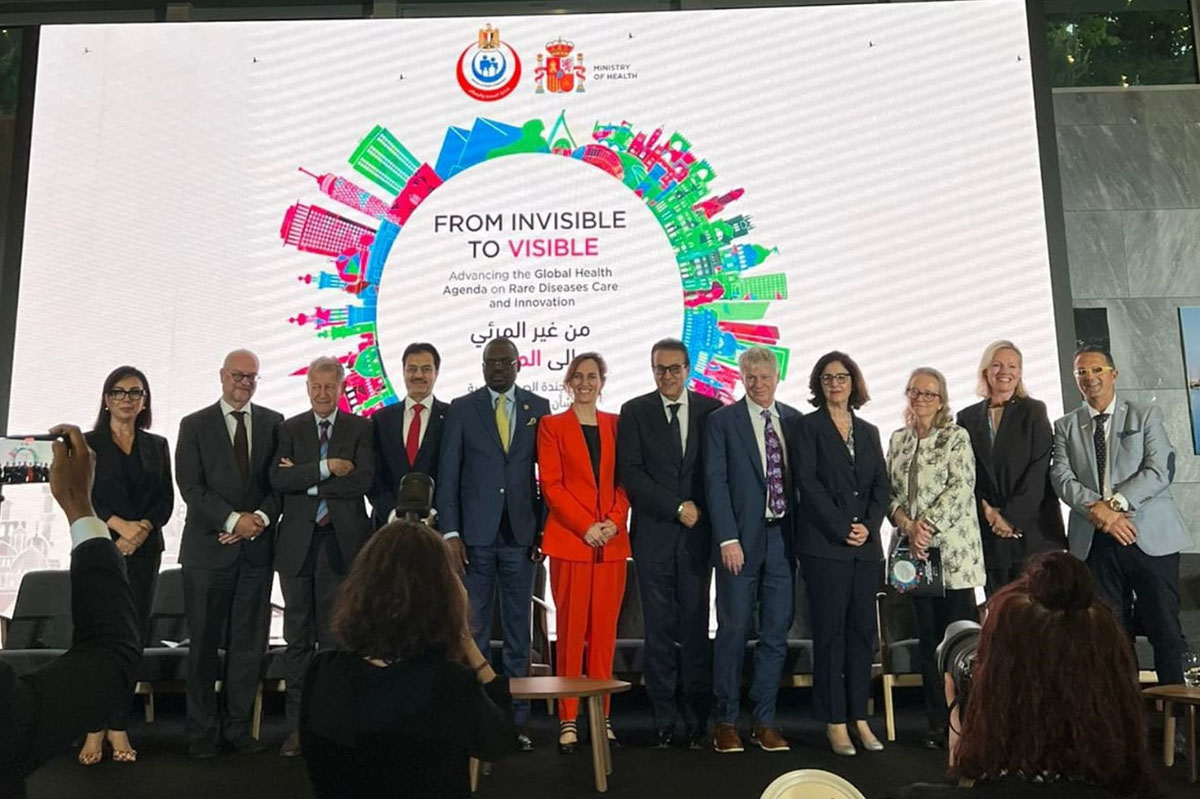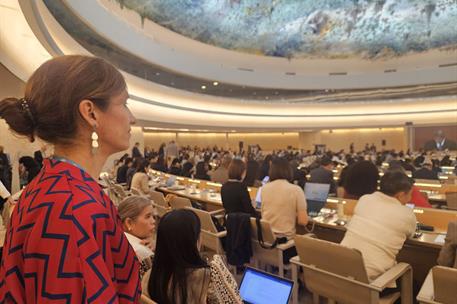 The Minister for Health, Mónica García, in a group photo from the 78th World Health Assembly
The Minister for Health, Mónica García, in a group photo from the 78th World Health Assembly
The 78th World Health Assembly has adopted a landmark resolution declaring rare diseases a global public health priority, with the aim of promoting equity, inclusion and universal access to essential health services.
The resolution, co-sponsored by Spain and Egypt, highlights the urgency of addressing the challenges faced by more than 300 million people living with rare diseases worldwide and their caregivers.
"Today we have the opportunity to transform the lives of millions of people," said Monica Garcia. "But for these commitments to translate into real improvements, words are not enough: we need a comprehensive and coordinated effort, a common and ambitious roadmap to guide our actions and ensure that no patient is left behind.
According to the adopted text, WHO and Member States should work together to:
- Develop a comprehensive global action plan (2025-2028): WHO will develop, in consultation with Member States and relevant organisations, a ten-year global strategic plan to improve diagnosis, treatment, research and comprehensive care for rare diseases. The draft will be presented to the 81st World Health Assembly in 2028.
- Integration of rare diseases into national health systems: countries are urged to include these diseases in their public health policies, through national plans addressing prevention, early detection (such as neonatal screening), multidisciplinary care, rehabilitation and psychosocial support.
- Strengthening universal health coverage: the resolution focuses on equity in access to essential services and calls on states to expand health coverage to ensure timely diagnostics, affordable medicines and health technologies, without placing a financial burden on families.
- Promoting research and innovation: the need to increase public and private investment in research into rare diseases, many of which still lack effective treatment, is recognised. Partnerships between governments, scientific institutions, the private sector and patient organisations will be promoted.
- Health education and training: the resolution emphasises the training of health professionals from the formative stages, in order to improve detection, the clinical approach and provide appropriate care for patients, thus avoiding erroneous or late diagnoses.
- Involvement of patients and civil organisations: the active inclusion of people living with rare diseases and their organisations in policy-making, health planning and service evaluation processes is encouraged to ensure a patient-centred approach.
- Data collection and creation of national and international registries: countries are encouraged to create or strengthen rare disease registries, and to adopt coding systems such as ICD-11 or Orphanet nomenclature, to improve statistical visibility and evidence-based decision-making.
- International cooperation and equitable access to treatment: cooperation between countries will be promoted to facilitate global access to effective, safe and affordable treatment, especially in regions with limited resources. The resolution also highlights the role of digital technologies, such as telemedicine, in bringing specialised care to remote areas.
Furthermore, the resolution underlines the need to actively include patient organisations and people living with rare diseases in decision-making processes, as well as to remove the social, economic and cultural barriers that still today hinder their access to fundamental rights such as health, education and employment.
In this regard, the Minister for Health, Mónica García, highlighted the concrete steps taken by Spain in this area. "Since 2009, our National Health System has had a strategy on rare diseases that is already making a difference," she said, also underlining that "from 2025, we are extending neonatal screening to include 23 congenital diseases, which will be a crucial step in early diagnosis".
García wanted to convey a message of hope, stressing that "we have ever more means to improve diagnosis and treatment. The big challenge is ensuring that these means actually reach the people who need them. She added: "Our commitment is clear: to move towards a fairer and more equitable model, where no patient is left behind.
This milestone reinforces the international commitment to the Sustainable Development Goals (SDGs), especially target 3.8 on universal health coverage, and advances the recognition of the rights of people with rare diseases as an integral part of human rights.
The WHO will present an initial report on the implementation of this resolution in 2026, and a draft action plan in 2028, thus consolidating a new framework for global cooperation on these neglected diseases.
Non official translation





